An election about who’s best to handle Trump spells trouble for Bloc Québécois, say observers
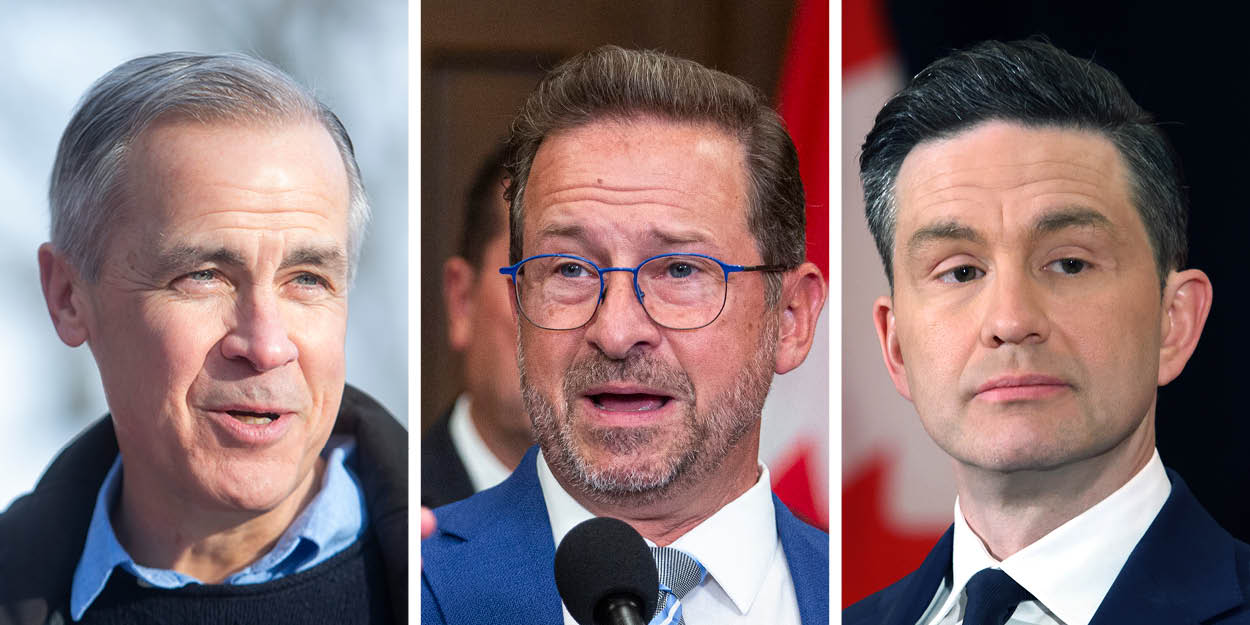
Shifting attitudes about Quebec sovereignty and U.S. President Donald Trump’s anti-Canada rhetoric are boosting the federal Liberals in Quebec polls, and shrinking the Bloc Québécois’ support—even as the provincial Parti Québécois clings to its lead.
It’s a phenomenon observers say will challenge the Bloc’s relevance if the ballot-box question is who can best handle Trump, but is not hurting the provincial sovereigntist party when facing its “ideological enemy,” the provincial Liberals.
The provincial Liberal Party and the Parti Québécois “actually need the other to live,” said former Conservative staffer Yan Plante.
As The Hill Times reported on Feb. 14, Trump’s threats against Canadian sovereignty have evoked strong feelings in Quebec, causing an upswing in positive sentiment about Canada, and an eight-point decline in support for sovereignty to 29 per cent. Those findings come from several Leger and Angus Reid polls.
In that context, support for political parties in Quebec is also on the move. A Feb. 11 Leger poll found 33 per cent of Quebecers said they would cast their ballot for the federal Liberal Party—up 11 points from the 22 per cent ticking that response in the firm’s Jan. 27 poll. The Bloc Québécois has taken an equally significant tumble over the same time period. The Feb. 10 poll reported the Bloc with 29 per cent support, down from 37 per cent in the previous month. The Conservatives dropped from 25 to 22 per cent from the first poll to the second, while the NDP held steady at 10 per cent in the region.

Former Liberal staffer Jeremy Ghio said the polling shift spells potential danger for the Bloc in the coming election.
“When people don’t think you’re in a position to govern the country—in the middle of a crisis like the one we’re facing right now—it puts your party in a delicate position,” he said.
The Liberal and Conservative leaders benefit when Trump is the central focus for voters, which he said hampers both the Bloc and the NDP.
“If the ballot question is, ‘let’s get rid of Justin Trudeau, then you have a myriad of options,” he said. “If you’re the Bloc Québécois, you can say, ‘let’s vote Bloc, and we’ll have a Quebec representation on the Hill.’”
However, said Ghio, if it’s “‘who’s the best person to face Donald Trump?’ then there’s only two answers possible.”
Ghio said he is hearing from lifelong Bloc Québécois voters who say they are “considering the Liberals right now because of the situation south of the border.”
“No Liberal will tell you that the tariff threat and the Donald Trump situation is good for them, but it’s actually strategically and politically good for them,” said Ghio.
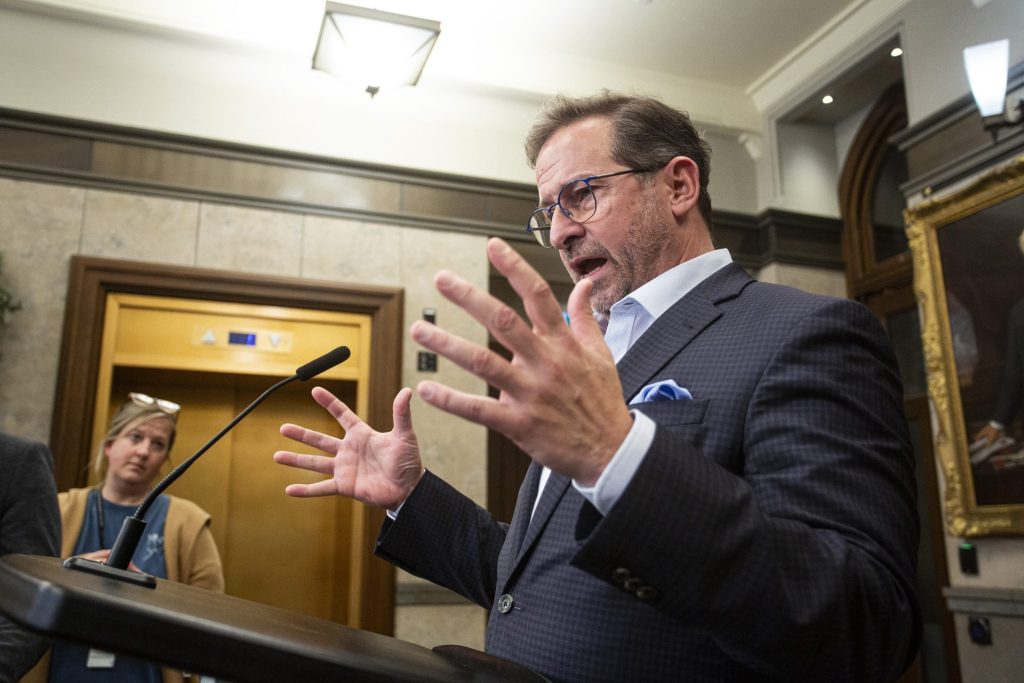
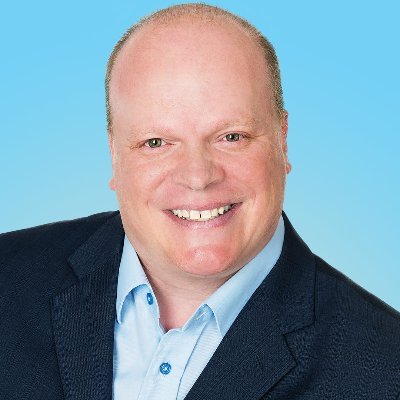
The Conservatives are the other national contender to form government, but former NDP staffer Karl Bélanger said Leader Pierre Poilievre (Carleton, Ont.) continues to struggle in the region because his message has never caught on in Quebec—even before Trump came to dominate the conversation.
Bélanger said the Tory carbon-tax messaging that helped Poilievre soar in the polls in the rest of Canada is not a relevant topic for voters in the province.
“He needs to figure out what he’s trying to sell to Quebecers,” said Bélanger.
He added that Poilievre may see a path to government that does not run through Quebec, so it’s possible that “it’s better for his party and his brand to stick to the recipe that has worked” for them in the rest of the country, even if it is less appealing in Quebec.
PQ, Liberals ‘need the other to live’: Plante
While the Bloc has seen a significant drop in its support, its provincial cousins in the Parti Québécois have seen only a mild decline.
In a Feb. 6 Leger poll, the PQ sat at 30-per-cent support, down only one point from the previous survey, while the Quebec Liberals were up five points with 21-per-cent support. That ties them for second place with the governing Coalition Avenir Québec (CAQ)—which dropped three points to also sit at 21-per-cent support.

Plante—who told The Hill Times recently that Trump’s rhetoric is likely to not only fuel Canadian patriotism in the province, but also to animate core Quebec nationalists—said the trends playing out with federal and provincial party polling numbers highlight this dynamic.
“I think it may be just confirming that this situation is fuelling both” Canadian patriotism and Quebec nationalism, said Plante. “We can see it because the parties who represent that are the PQ and the Liberals, depending on which side you are.”
“Those parties actually need the other to live,” said Plante of the Parti Québécois and provincial Liberals. “The PQ needs the Liberals to have their ideological enemy, and the Liberals need the PQ.”
Plante said that’s why “the titanic achievement of the CAQ” was to break that binary choice in provincial elections by not focusing on the sovereignty issue.
“The generation of my father, they’ve always seen Quebec politics through the lens of ‘yes’ or ‘no,’” said Plante. “Nothing else.” The left-right spectrum for how the party would govern the province was not relevant to that generation of voters.
PQ Leader Paul St-Pierre Plamondon being “so blunt” about his intentions to hold a referendum opened the door for provincial and federal Liberals to again frame the debate as a “fight for Canada,” said Plante.
The federal Liberals’ narrative as defenders of Canada is now amplified by the dynamics Trump has created.
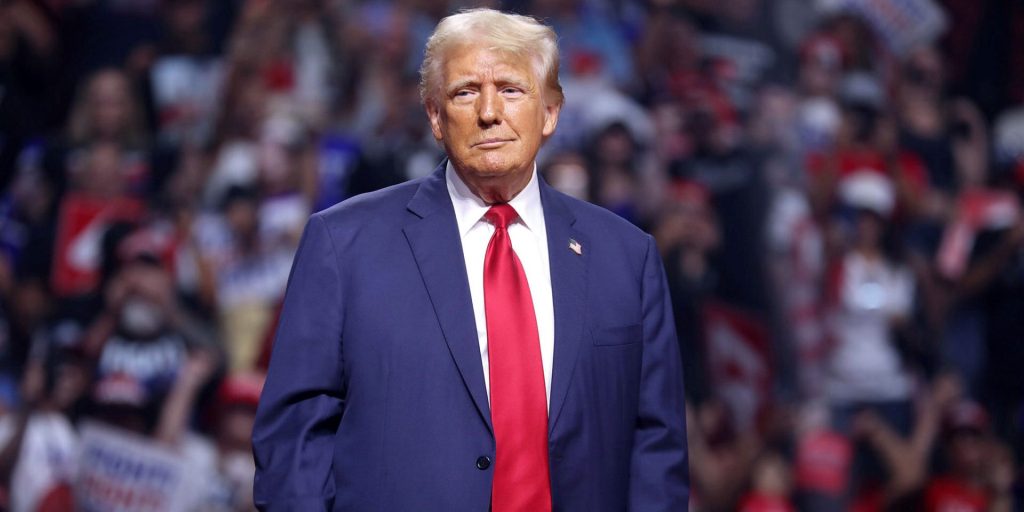
Polling shifts impact Quebec’s electoral map
With support shifting in the region, the Bloc no longer looks poised to make the big seat gains in the coming federal election, according to Philippe Fournier, editor of the polling aggregator 338 Canada.

In 2021, the Bloc won 32 of Quebec’s 78 seats, and before the shift in the polls might have captured 10 to 15 new ridings in the next campaign, Fournier said. If the new context holds, the forecast suggests the Bloc will retain its current ridings but not grow.
Fournier said the Bloc derives its support from two different kinds of voters: sovereigntists, and those wishing to pick “none of the above.”
He said the Bloc’s support dropping from the mid-to-high 30s down to the high 20s—a figure closely aligned with the pro-sovereignty numbers—suggests the party has held the former group but bled the latter.
“Those swing voters … seem to be putting their chips in with [Liberal leadership candidate] Mark Carney,” said Fournier.
He said the Tory numbers—despite have dropped slightly from the mid 20s down to the low 20s—remain above the historic baseline for the modern Conservative Party in Quebec which has often polled only in the high teens.
However, like the Bloc, Conservative support at present would likely only be enough for them to hold their current ground, not pick up many new ridings, said Fournier.
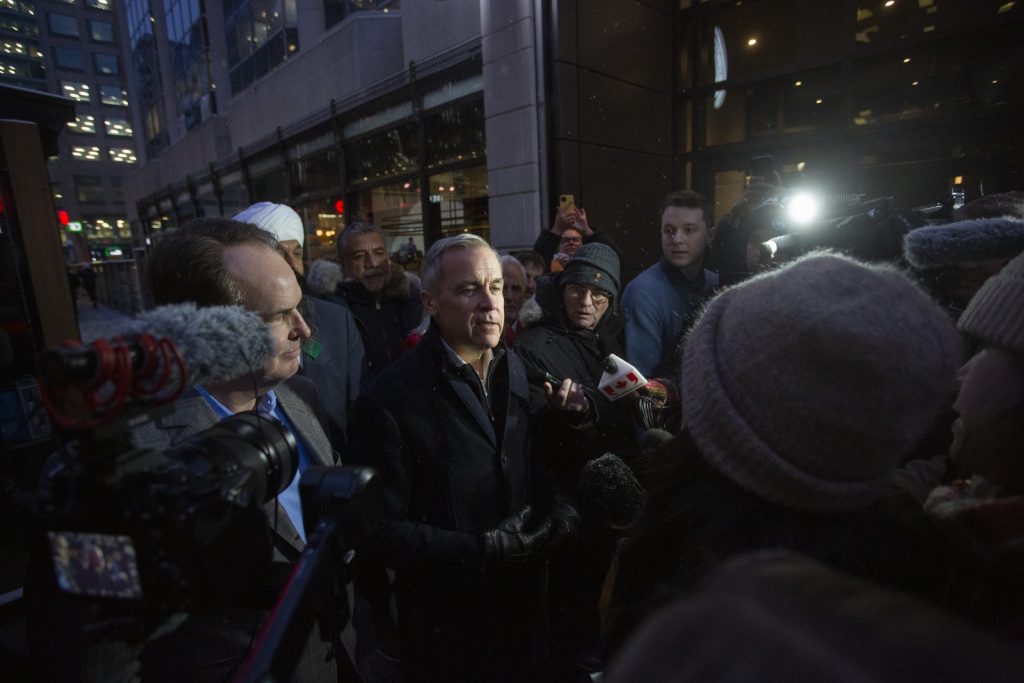
He said nine of the 10 seats the Tories currently hold in the province are quite safe, except for MP Richard Martel’s riding of Chicoutimi—Le Fjord, Que., which the Bloc will be aiming to flip.
If the Bloc and Tories each hold their territory but fail to make gains, that’s likely to also leave the Liberals keeping many of their current 33 seats in the province. That’s significant because these are ridings they desperately need to remain competitive nationally.
Leger’s polling suggests federal Liberals would see a further uptick in Quebec under Carney’s leadership. But Fournier said that support is not necessarily baked in yet.
“This is a sugar high right now,” said Fournier. “They’re intrigued by the idea and the prospect of Mark Carney, more than Mark Carney himself.”
Plante said there is clearly some interest right now in Carney, but he’ll face a serious challenge keeping that support.
“I’m pretty skeptical that Mark Carney could be better than Justin Trudeau in Quebec … after five weeks of having [Bloc Leader] Yves-François Blanchet and Pierre Poilievre on his back,” said Plante.
Ghio said consolidating that support will be key for Carney if he becomes leader.
“If you lose seats in Quebec, and you’re a Liberal leader, you basically exclude yourself from government, and you might be in danger for the official opposition status,” said Ghio. “The Liberal Party needs Quebec to win.”
This is the second installment in a two-part look at current trends in Quebec politics. Part one, published on Feb. 14, explored how Trump’s rhetoric about making Canada the “51st state” has affected support for Quebec sovereignty.
Editor’s note: This story was updated on Feb. 20, 2024, to clarify that Plante said the PQ and the provincial Liberals ‘need the other to live,’ not the federal Liberals.
icampbell@hilltimes.com
The Hill Times






 LICENSING
LICENSING PODCAST
PODCAST ALERTS
ALERTS













